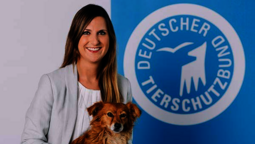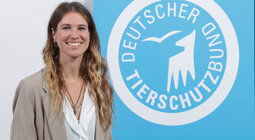The German Animal Welfare Federation welcomes the fact that the EU Commission has today presented a draft for a new EU transport regulation, which is intended to ensure the protection of animals during transportation. However, the German Animal Welfare Federation's assessment is mixed; the federation calls for urgent improvements. It is positive that many aspects have been specified or newly included in the interests of the animals. Nevertheless, there is still no guarantee that farm animals, pets and aquatic animals are adequately protected during transportation.
"After almost 20 years of campaigning for improvements, after numerous evaluations, hearings and discussions that have swallowed up taxpayers' money, the result presented by the EU Commission today is sobering. In its current form, the draft allows animals to continue to be subjected to unacceptable treatment during transportation - especially on long journeys. Even if there are some improvements: The EU must put a stop to animal suffering during transportation by truck and ship. We appeal to the EU Parliament and the Council to make significant improvements to the draft in the interests of the animals," commented Thomas Schröder, President of the German Animal Welfare Federation.
NO MOVE AWAY FROM LONG TRANSPORTS OF LIVE ANIMALS
Although the abuses associated with the transportation of farm animals have long been known and sufficiently documented, the EU is not taking advantage of the historic opportunity to make significant improvements: according to the draft, there are no plans to move away from the transportation of live animals over long distances and to countries outside Europe, nor to move away from the transportation of animals by ship - even though these are particularly painful and adequate care and support for the animals at sea cannot be guaranteed. The German Animal Welfare Federation welcomes the fact that animals are given more space during transport, that transport times in trucks are limited and that the minimum age for calves during transport has been raised from 14 days to five weeks.
THE DRAFT PAYS MORE ATTENTION TO DOGS, CATS AND AQUATIC ANIMALS
For dogs and cats, for example, more precise requirements than before regulate the temperature, feeding and water supply during transportation - even if these do not go far enough for animal welfare activists. The German Animal Welfare Federation also criticizes the fact that reptiles and amphibians are not taken into account. Ornamental fish are completely excluded from the regulation. However, "food fish", crustaceans and cephalopods are included for the first time. While the previous version of the regulation did not apply to aquatic organisms, the draft now bundles together important principles for the transportation of these animals - without, however, specifying the necessary concrete criteria for individual species.
The next step is for the Council of Agriculture Ministers and the EU Parliament to discuss the draft for a new transport regulation. It is just one part of a package of animal welfare legislation promised by the EU, which is also intended to regulate agricultural animal husbandry, slaughter and the labeling of meat. "The EU Commission must present the three missing legislative proposals as soon as possible," demands Schröder.
Note to editors: We will be happy to send you the important aspects of the new draft regulation and a brief classification/assessment from an animal welfare perspective on request.








